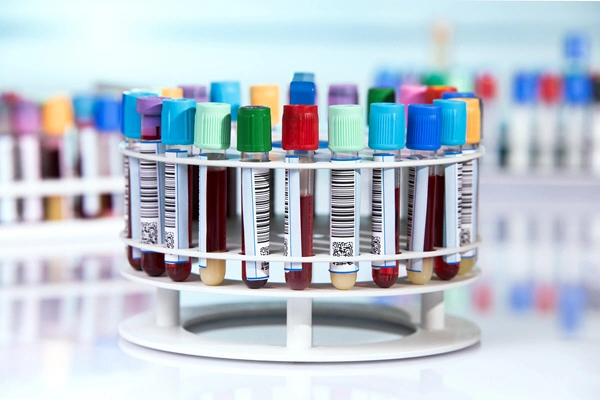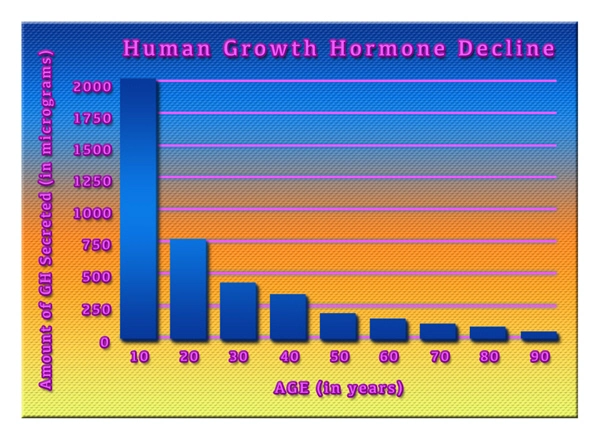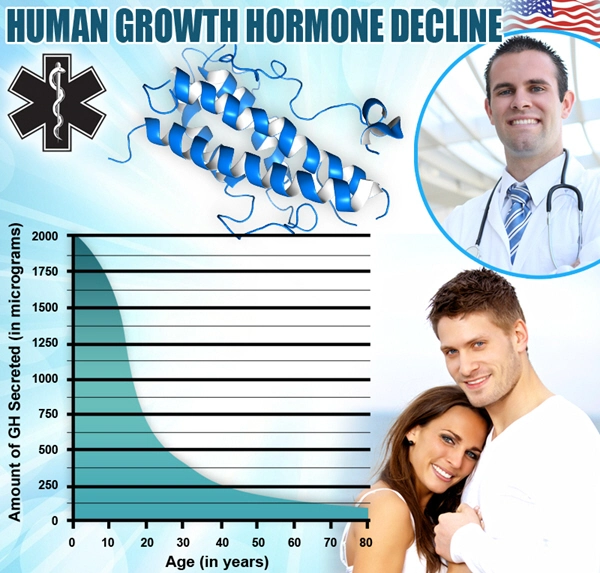Introduction
Andropause, often referred to as male menopause, is a term used to describe the gradual decline in testosterone levels in aging men. This phenomenon has significant implications for reproductive and sexual health. Over the past two decades, research has shed light on the multifaceted impacts of andropause on American males. This article provides a detailed analysis of fertility and sexual health outcomes, offering insights into the challenges and potential interventions for men navigating this life stage.
Understanding Andropause
Andropause is characterized by a slow and steady decline in testosterone levels, typically beginning in a man's late 30s or early 40s. Unlike the more abrupt hormonal changes experienced by women during menopause, andropause is a more gradual process. Symptoms can include reduced libido, erectile dysfunction, fatigue, and mood changes. These symptoms can significantly impact a man's quality of life and overall well-being.
Fertility Outcomes
Over the past 20 years, studies have consistently shown a correlation between declining testosterone levels and reduced fertility in American males. As testosterone levels decrease, so does sperm production, which can lead to difficulties in conceiving. A study published in the *Journal of Clinical Endocrinology & Metabolism* found that men with lower testosterone levels had a 25% lower sperm count compared to those with normal levels. This decline in fertility can be a source of stress and anxiety for men and their partners who are trying to start or expand their families.
Sexual Health and Function
Sexual health is another critical area affected by andropause. The decline in testosterone can lead to a reduced sex drive and difficulties achieving and maintaining erections. According to data from the National Health and Nutrition Examination Survey (NHANES), the prevalence of erectile dysfunction among American men aged 40-70 has increased by 10% over the past two decades. This trend underscores the need for targeted interventions to support sexual health in aging men.
Psychological and Emotional Impact
The psychological and emotional toll of andropause should not be underestimated. Men experiencing symptoms of andropause may feel a loss of vitality and self-esteem, which can contribute to depression and anxiety. A longitudinal study conducted by the University of Chicago found that men with lower testosterone levels were twice as likely to report symptoms of depression compared to those with normal levels. Addressing these psychological aspects is crucial for holistic care.
Interventions and Management Strategies
Fortunately, there are several interventions available to manage the symptoms of andropause and improve reproductive and sexual health outcomes. Hormone replacement therapy (HRT) is one option, which involves supplementing testosterone levels to alleviate symptoms. However, HRT is not suitable for everyone and should be carefully considered in consultation with a healthcare provider.
Lifestyle modifications can also play a significant role in managing andropause. Regular exercise, a balanced diet, and stress management techniques can help mitigate some of the symptoms. Additionally, open communication with partners about sexual health and fertility concerns can foster a supportive environment and reduce emotional strain.
Future Directions in Research
As research continues to evolve, there is a growing emphasis on personalized medicine approaches to andropause. Genetic testing and advanced diagnostic tools may soon allow for more tailored treatment plans, optimizing outcomes for individual patients. Furthermore, ongoing studies are exploring the long-term effects of testosterone supplementation, aiming to provide clearer guidelines for its use.
Conclusion
Andropause presents a complex set of challenges for American males, affecting both their reproductive and sexual health. Over the past 20 years, research has provided valuable insights into the nature of these changes and the potential interventions available. By understanding the multifaceted impacts of andropause, healthcare providers can offer more comprehensive care, helping men navigate this life stage with greater ease and confidence. As we move forward, continued research and personalized approaches will be key to improving outcomes for men experiencing andropause.

- Understanding Andropause: Symptoms, Impact, and Management Strategies for American Men [Last Updated On: December 20th, 2025] [Originally Added On: February 18th, 2025]
- Andropause: Debunking Myths and Understanding Realities for American Men's Health [Last Updated On: March 16th, 2025] [Originally Added On: March 16th, 2025]
- Andropause and Prostate Health: Understanding the Link and Managing Risks in American Males [Last Updated On: March 17th, 2025] [Originally Added On: March 17th, 2025]
- Supplements for Andropause: Enhancing American Men's Health and Vitality [Last Updated On: March 18th, 2025] [Originally Added On: March 18th, 2025]
- Navigating Andropause: Emotional Symptoms and Support Strategies for American Men [Last Updated On: March 19th, 2025] [Originally Added On: March 19th, 2025]
- Managing Andropause: Diet, Exercise, Stress, Sleep, and Regular Check-ups for American Men [Last Updated On: March 19th, 2025] [Originally Added On: March 19th, 2025]
- Andropause and Cognitive Health: Strategies for American Men to Maintain Mental Sharpness [Last Updated On: March 19th, 2025] [Originally Added On: March 19th, 2025]
- Andropause: Understanding Male Menopause and Embracing Life Changes [Last Updated On: March 21st, 2025] [Originally Added On: March 21st, 2025]
- Andropause in American Males: Understanding and Managing Diabetes Risk [Last Updated On: March 21st, 2025] [Originally Added On: March 21st, 2025]
- Managing Andropause: Symptoms, Medical Advice, and Treatment Options for Aging Men [Last Updated On: March 21st, 2025] [Originally Added On: March 21st, 2025]
- Andropause: Mental Health Strategies for Aging American Men [Last Updated On: March 21st, 2025] [Originally Added On: March 21st, 2025]
- Andropause: Importance of Regular Check-ups for Men's Health and Well-being [Last Updated On: March 21st, 2025] [Originally Added On: March 21st, 2025]
- Navigating Andropause: Emotional Strategies for American Men's Well-being [Last Updated On: March 22nd, 2025] [Originally Added On: March 22nd, 2025]
- Andropause and Memory: Strategies for American Males to Enhance Cognitive Function [Last Updated On: March 22nd, 2025] [Originally Added On: March 22nd, 2025]
- Andropause and Depression: Recognizing Signs and Seeking Help for American Men [Last Updated On: March 23rd, 2025] [Originally Added On: March 23rd, 2025]
- Hydration's Crucial Role in Managing Andropause Symptoms in American Men [Last Updated On: March 23rd, 2025] [Originally Added On: March 23rd, 2025]
- Andropause: Managing Symptoms to Balance Work and Health in American Men [Last Updated On: March 23rd, 2025] [Originally Added On: March 23rd, 2025]
- Managing Andropause: Essential Foods for American Males' Health and Vitality [Last Updated On: March 23rd, 2025] [Originally Added On: March 23rd, 2025]
- Andropause and Vision: Understanding Changes and Managing Eye Health in American Males [Last Updated On: March 23rd, 2025] [Originally Added On: March 23rd, 2025]
- Andropause in American Men: Combating Fatigue with Exercise, Diet, and Medical Strategies [Last Updated On: March 23rd, 2025] [Originally Added On: March 23rd, 2025]
- Andropause: Family Support Crucial for Men's Health and Well-being [Last Updated On: March 23rd, 2025] [Originally Added On: March 23rd, 2025]
- Andropause and Hormone Replacement Therapy: Benefits and Risks for American Men [Last Updated On: March 23rd, 2025] [Originally Added On: March 23rd, 2025]
- Andropause: Navigating Male Menopause with Support and Understanding [Last Updated On: March 24th, 2025] [Originally Added On: March 24th, 2025]
- Andropause: Navigating Social Impacts and Maintaining Connections in American Men [Last Updated On: March 24th, 2025] [Originally Added On: March 24th, 2025]
- Andropause and Blood Pressure: Monitoring and Management Tips for American Males [Last Updated On: March 24th, 2025] [Originally Added On: March 24th, 2025]
- Andropause and Skin Health: Skincare Strategies for American Males [Last Updated On: March 25th, 2025] [Originally Added On: March 25th, 2025]
- Andropause: Managing Mental Health with Strategic Mental Health Days [Last Updated On: March 25th, 2025] [Originally Added On: March 25th, 2025]
- Andropause and Hair Loss: Causes, Diagnosis, and Treatment Options for American Males [Last Updated On: March 25th, 2025] [Originally Added On: March 25th, 2025]
- Andropause: Declining Testosterone and Its Impact on Kidney Health in American Men [Last Updated On: March 25th, 2025] [Originally Added On: March 25th, 2025]
- Andropause and Digestive Health: Symptoms, Management, and Medical Advice for American Males [Last Updated On: March 25th, 2025] [Originally Added On: March 25th, 2025]
- Managing Andropause: Exercise, Nutrition, and HRT for American Males' Muscle Health [Last Updated On: March 25th, 2025] [Originally Added On: March 25th, 2025]
- Andropause and Liver Health: Strategies for American Males [Last Updated On: March 26th, 2025] [Originally Added On: March 26th, 2025]
- Managing Andropause: Effective Stress Reduction Strategies for American Men [Last Updated On: March 26th, 2025] [Originally Added On: March 26th, 2025]
- Andropause: Understanding Male Menopause and Managing Its Effects [Last Updated On: March 26th, 2025] [Originally Added On: March 26th, 2025]
- Managing Andropause: Benefits of Exercise and Diet for Aging American Men [Last Updated On: March 26th, 2025] [Originally Added On: March 26th, 2025]
- Andropause and Thyroid Function: Interconnected Health Issues in Aging American Men [Last Updated On: March 26th, 2025] [Originally Added On: March 26th, 2025]
- Andropause and Cholesterol: Managing Lipid Levels in Aging American Males [Last Updated On: March 26th, 2025] [Originally Added On: March 26th, 2025]
- Andropause and Joint Health: Strategies for American Men [Last Updated On: March 26th, 2025] [Originally Added On: March 26th, 2025]
- Andropause in American Males: Impacts and Management of Respiratory Health [Last Updated On: March 27th, 2025] [Originally Added On: March 27th, 2025]
- Andropause and Sleep: Managing Symptoms in American Men Through Holistic Approaches [Last Updated On: March 27th, 2025] [Originally Added On: March 27th, 2025]
- Andropause and Emotional Intelligence: Navigating Male Menopause in American Men [Last Updated On: March 27th, 2025] [Originally Added On: March 27th, 2025]
- Andropause: Impact on American Men's Self-Esteem and Treatment Options [Last Updated On: March 27th, 2025] [Originally Added On: March 27th, 2025]
- Andropause: Understanding Male Menopause and Its Impact on Energy and Vitality [Last Updated On: March 28th, 2025] [Originally Added On: March 28th, 2025]
- Andropause in American Men: Symptoms, Diagnosis, and Holistic Management Strategies [Last Updated On: March 28th, 2025] [Originally Added On: March 28th, 2025]
- Andropause: Understanding Symptoms, Importance of Screenings, and Proactive Health Management for Men [Last Updated On: March 29th, 2025] [Originally Added On: March 29th, 2025]
- Mindfulness: A Holistic Approach to Managing Andropause in American Men [Last Updated On: March 29th, 2025] [Originally Added On: March 29th, 2025]
- Andropause: Understanding Male Menopause and Its Impact on Motivation and Well-being [Last Updated On: March 29th, 2025] [Originally Added On: March 29th, 2025]
- Andropause and Immune Health: Strategies for American Males [Last Updated On: March 29th, 2025] [Originally Added On: March 29th, 2025]
- Andropause: Understanding Symptoms, Treatments, and Maintaining Confidence in American Men [Last Updated On: March 29th, 2025] [Originally Added On: March 29th, 2025]
- Andropause and Hearing Loss: Understanding the Link and Managing Symptoms [Last Updated On: March 30th, 2025] [Originally Added On: March 30th, 2025]
- Andropause and Dental Health: Essential Tips for American Males [Last Updated On: March 30th, 2025] [Originally Added On: March 30th, 2025]
- Andropause: Enhancing Men's Quality of Life Through Community Support and Awareness [Last Updated On: March 30th, 2025] [Originally Added On: March 30th, 2025]
- Hobbies: A Vital Tool for Managing Andropause in American Men [Last Updated On: March 31st, 2025] [Originally Added On: March 31st, 2025]
- Managing Andropause and Allergies: A Comprehensive Guide for American Males [Last Updated On: April 1st, 2025] [Originally Added On: April 1st, 2025]
- Andropause: Impact on Creativity and Cognitive Function in Aging American Men [Last Updated On: April 2nd, 2025] [Originally Added On: April 2nd, 2025]
- Navigating Andropause: Goal Setting for Health and Resilience in American Men [Last Updated On: April 5th, 2025] [Originally Added On: April 5th, 2025]
- Andropause and Skin Sensitivity: Management Tips for American Men [Last Updated On: April 6th, 2025] [Originally Added On: April 6th, 2025]
- Andropause: Understanding Male Menopause and Its Impact on Purpose and Well-being [Last Updated On: April 7th, 2025] [Originally Added On: April 7th, 2025]
- Technology's Role in Managing Andropause: Wearables, Telemedicine, and AI Solutions [Last Updated On: April 7th, 2025] [Originally Added On: April 7th, 2025]
- Andropause Impact on Foot Health: Symptoms, Risks, and Management Strategies for Men [Last Updated On: April 8th, 2025] [Originally Added On: April 8th, 2025]
- Andropause and Time Management: Strategies for American Men to Thrive [Last Updated On: April 8th, 2025] [Originally Added On: April 8th, 2025]
- Andropause Effects on Nail Health: Strategies for American Males [Last Updated On: April 9th, 2025] [Originally Added On: April 9th, 2025]
- Andropause Effects on Hand Health: Strategies for American Males [Last Updated On: April 10th, 2025] [Originally Added On: April 10th, 2025]
- Volunteering: A Holistic Approach to Managing Andropause in American Men [Last Updated On: April 10th, 2025] [Originally Added On: April 10th, 2025]
- Andropause Impact on Eye Health: Dry Eye, Cataracts, AMD in American Males [Last Updated On: April 10th, 2025] [Originally Added On: April 10th, 2025]
- Andropause: Impact on American Men's Adventure and Lifestyle Management Strategies [Last Updated On: April 11th, 2025] [Originally Added On: April 11th, 2025]
- Travel as Therapy: Managing Andropause Symptoms in American Men [Last Updated On: April 12th, 2025] [Originally Added On: April 12th, 2025]
- Andropause and Lifelong Learning: Enhancing Men's Health and Well-being [Last Updated On: April 12th, 2025] [Originally Added On: April 12th, 2025]
- Andropause and Ear Health: Strategies for American Males to Maintain Auditory Function [Last Updated On: April 15th, 2025] [Originally Added On: April 15th, 2025]
- Andropause Management: Harnessing Music Therapy for American Men's Holistic Health [Last Updated On: April 16th, 2025] [Originally Added On: April 16th, 2025]
- Andropause and Nasal Health: Symptoms, Management, and Impact on American Males [Last Updated On: April 16th, 2025] [Originally Added On: April 16th, 2025]
- Andropause Impact on American Men's Humor: Coping Strategies and Support [Last Updated On: April 17th, 2025] [Originally Added On: April 17th, 2025]
- Andropause: Understanding Male Menopause and Its Impact on American Men's Identity [Last Updated On: April 17th, 2025] [Originally Added On: April 17th, 2025]
- Art Therapy: A Holistic Approach to Managing Andropause in American Men [Last Updated On: April 18th, 2025] [Originally Added On: April 18th, 2025]
- Andropause: Navigating Male Menopause Through Social Connections and Open Dialogue [Last Updated On: April 18th, 2025] [Originally Added On: April 18th, 2025]
- Andropause and Throat Health: Symptoms, Management Tips, and Lifestyle Adjustments for American Men [Last Updated On: April 19th, 2025] [Originally Added On: April 19th, 2025]
- Andropause: Financial Planning and Lifestyle Adjustments for American Men's Health [Last Updated On: April 19th, 2025] [Originally Added On: April 19th, 2025]
- Andropause Effects on Tongue Health: Symptoms, Management, and Hormonal Therapy Insights [Last Updated On: April 19th, 2025] [Originally Added On: April 19th, 2025]
- Andropause Impact: Rising Depression and Anxiety Rates in American Males Over 20 Years [Last Updated On: April 22nd, 2025] [Originally Added On: April 22nd, 2025]
- Andropause: Understanding Male Menopause and Its Mental Health Impacts in American Men [Last Updated On: April 22nd, 2025] [Originally Added On: April 22nd, 2025]



List of USA state clinics - click a flag below for blood testing clinics.
Word Count: 626


















































